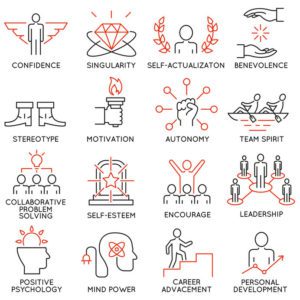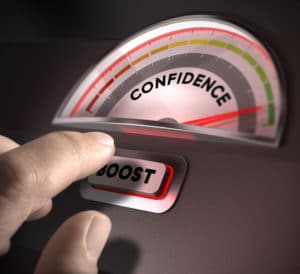
How to use Martial Arts to Develop Positive Self-Esteem. Whatever style of Martial Art you practice you will find building your self-esteem is one of the many benefits of your efforts. In order to understand how to use martial arts to develop positive self-esteem we need to analyze what it is. Also, how our efforts with training will in one direction or the other effect our attitudes, thoughts and behaviors.
What is self-esteem?
“Self-esteem- Reflects an individual’s overall subjective emotional evaluation of their own worth. It is the decision made by an individual as an attitude towards the self. Self-esteem encompasses beliefs about oneself, (for example, “I am competent”, “I am worthy”), as well as emotional states, such as triumph, despair, pride and shame.”
Here are a few ideas you can use with your training to help build your positive self-esteem through training. You will find this will not only make you more successful with your training goals, but in every other area in life as well.
1- Use positive affirmative language.
Never say I can’t, it’s hard, I’m not sure, etc… Build your vocabulary with words and statements that will help you respond to others and to yourself in the positive.
Think of three conversations or subjects where you are currently using negative affirmative language. Then brainstorm three or four positive responses you can use to replace them.
Training example: The first month of training is difficult for any newcomer. Focus on your thought process when learning a new technique. What kind of language do you use to reinforce the experience, positive or negative? If you are using negative vocabulary find words that you can use to be more positive.
2- Accumulate the best training equipment you can find.
This will feel good to use good effective safe equipment. You will know that you and your training partners are protected and it will make you feel more professional and committed.
3- Show discipline every time you train solo or with a partner.
When we bow at the beginning of the class or before we train with a partner it is not saying that you are subservient to your teacher or training partners. It is showing that you have a sense of respect and discipline for yourself, your training partners and your teachers. It is a sign of appreciation for the practice and those who you get to share it with. Lastly it is a sign of humility, because without that, your practice will be shallow. This attitude of respect, humility and discipline should follow you out side the doors of the academy in all of your daily interactions.

4- Understanding the lineage of the art you are practicing.
This will help you to be proud of where you come from. It will also give you more confidence in what you are learning. This is important for in order to improve you should be grateful, hungry to grow and have a meticulous desire to do the best you can every time you step out on to the floor.
5- Always try to do better. Strive to give 100% effort in everything you do.
If you do this in every area of training it will make you more confident and it will feed over into other areas of your life. Continue to expand your awareness and be more observant in your actions. When you improve in an area you are working on acknowledge your effort and be proud of your accomplishment.
When in class if your partner gets something down that you are both struggling with acknowledge his success and tell him good job. Being a good supportive training partner will help everyone in the end.
Even when doing well never stop learning the minute you think you know 100% of what you are doing it is then you are falling behind. There have been many lessons along the way where I have had teachers show me things that I thought I understood at the time, then 3,4 or 5 years later I realized what they were trying to share. This is one of the awesome things about training in the martial arts you are never the master and there are always new layers to explore.
“Learning is like plowing. When you plow keep your head down and plow. Don’t look around and compare yourself to others. If you look around to see you are ahead of others, you feel proud and self-satisfied; then you slow down or stop. If you see you are behind, you feel sad and depressed, and you quit. Why do you look around? Just bow your head and keep plowing. One day, when you are tired, take a break and look around. You will see no one is in sight since you have left them far behind.”
If you adapt any of these ideas into your practice please share them on our Facebook group. It is helpful for others to see things from a different perspective maybe something that is working for you will resonate with them. Thanks for checking this out hope it gives you something to think about. Blog three in this series will be coming out next week.



